第27章
There were also some women among them, who, instead of the leopard-skin, wore a tanned hide of a small red buck, something like that of the oribe', only rather darker in color.These women were, as a class, exceedingly good-looking, with large, dark eyes, well-cut features, and a thick bush of curling hairnot crisped like a negro'sranging from black to chestnut in hue, with all shades of intermediate color.Some, but very few of them, wore a yellowish linen garment, such as I have described as worn by Billali, but this, as we afterwards discovered, was a mark of rank, rather than an attempt at clothing.For the rest, their appearance was not quite so terrifying as that of the men, and they sometimes, though rarely, smiled.
As soon as we had alighted they gathered round us and examined us with curiosity, but without excitement.
Leo's tall, athletic form and clear-cut Grecian face, however, evidently excited their attention, and when he politely lifted his hat to them, and showed his curling yellow hair, there was a slight murmur of admiration.Nor did it stop there; for, after regarding him critically from head to foot, the handsomest of the young womenone wearing a robe, and with hair of a shade between brown and chestnutdeliberately advanced to him, and in a way that would have been winning had it not been so determined, quietly put her arm round his neck, bent forward, and kissed him on the lips.
I gave a gasp, expecting to see Leo instantly speared;and Job ejaculated, "The hussywell, I never!" As for Leo, he looked slightly astonished; and then, remarking that we had got into a country where they clearly followed the customs of the early Christians, deliberately returned the embrace.
Again I gasped, thinking that something would happen;but.to my surprise, though some of the young women showed traces of vexation, the older ones and the men only smiled slightly.When we came to understand the customs of this extraordinary people the mystery was explained.It then appeared that, in direct opposition to the habits of almost every other savage race in the world, women among the Amahagger are not only upon terms of perfect equality with the men, but are not held to them by any binding ties.Descent is traced only through the line of the mother, and while individuals are as proud of a long and superior female ancestry as we are of our families in Europe, they never pay attention to, or even acknowledge, any man as their father, even when their male parentage is perfectly well known.There is but one titular male parent of each tribe, or, as they call it, "household," and he is its elected and immediate ruler, with the title of "Father." For instance, the man Billali was the father of this "household," which consisted of about seven thousand individuals all told, and no other man was ever called by that name.
When a woman took a fancy to a man she signified her preference by advancing and embracing him publicly, in the same way that this handsome and exceedingly prompt young lady, who was called Ustane, had embraced Leo.
If he kissed her in return it was a token that he accepted her, and the arrangement continued till one of them wearied of it.I am bound, however, to say that the change of husbands was not nearly so frequent as might have been expected.Nor did quarrels arise out of it, at least among the men, who, when their wives deserted them in favor of a rival, accepted the whole thing much as we accept the income-tax or our marriage laws, as something not to be disputed, and as tending to the good of the community, however disagreeable they may in particular instances prove to the individual.
It is very curious to observe how the customs of mankind on this matter vary in different countries, making morality an affair of latitude, and what is right and proper in one place wrong and improper in another.It must, however, be understood that, as all civilized nations appear to accept it as an axiom that ceremony is the touchstone of morality, there is, even according to our canons, nothing immoral about this Amahagger custom, seeing that the interchange of the embrace answers to our ceremony of marriage, which, as we know, justifies most things.